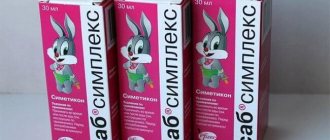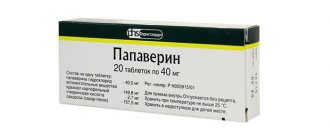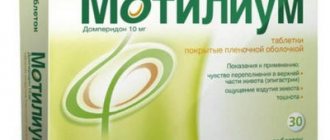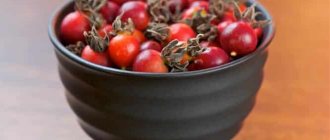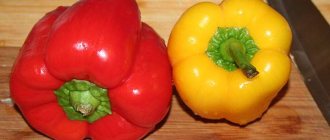Is it possible or not to drink herbal tea if you have stomach acidity problems?
Increases or decreases:
- Peppermint helps with high acidity
- If you have low acidity, you should give preference to mint, which increases the activity of the gastric glands.
Of course, you shouldn’t just self-medicate. But as an additional medicine, mint is quite suitable.
Important!
Before using this aromatic plant, be sure to consult your doctor to avoid complications and unpleasant consequences.
Benefits and harms
With increased
- To improve the patient's condition, the most popular type of mint is used - peppermint, the main active ingredient of which is menthol. This substance gives tone to the mucous walls of the intestines and eliminates pain. Peppermint contains the most menthol - from 50 to 80%, so its healing properties are higher than those of other types.
- In addition to essential oil with menthol, the leaves and flowers contain many vitamins and microelements, essential amino acids, and phytoncides. For patients with gastritis, tannins and flavonoids are most important. They are the ones who provide the medicinal effect.
- The plant itself is used in folk medicine as an anti-inflammatory agent, so mint can destroy harmful bacteria and the cause of gastritis - Helicobacter pylori. In addition, a decoction of its leaves has a sedative effect and reduces the nervous excitability characteristic of asthenic syndrome during gastritis.
- With gastritis with high acidity, hydrochloric acid is produced in large quantities. Peppermint can cope with symptoms such as:
- Sour belching after eating.
- "Hungry" pains.
- Heartburn.
- Stool disorders.
- Bloating.
- Flatulence.
Article on the topic
The benefits and harms of peppermint tea.
At low
Field mint is a wild plant. But if desired, it can be planted at home. For gastritis with low acidity, it improves appetite and increases acidity. It also eliminates signs of inflammation and reduces pain.
Combats the following symptoms:
- Nausea.
- Vomit.
- Flatulence.
- Diarrhea.
- Intestinal atony.
Advice
For both types of gastritis, eating mint will not harm the stomach if used in moderation. It is also important not to have concomitant diseases that are contraindications for treatment with mint. In other cases, the plant will benefit you.
Medicinal and beneficial properties of mint
Mint has long been widely used in both traditional and folk medicine and even cooking. Even ancient Greek and Roman scientists mentioned the benefits of mint and its beneficial effect on brain function.
Mint has a calming, choleretic, analgesic, antiseptic and vasodilating effect, and is included in many medications: mint drops for nausea, antispasmodic, appetite stimulating and stimulating the secretion of the digestive glands.
Mint has long been widely used in both traditional and folk medicine and even cooking.
Peppermint oil is an effective remedy used for stomach diseases, pain, heartburn, increased flatulence, or as an external remedy to improve the condition of the skin and mucous membranes. It can be used in small doses even to treat children over 6 years of age. Menthol, obtained from mint oil, is used for flatulence, angina pectoris, it is part of validol, valocardin, inhafen, olimethin, Zelenin drops, drops and ointments for the common cold, pencils for headaches and other medications.
In both traditional and folk medicine, mint is used for colds, throat diseases, vomiting, headaches, depression, insomnia, nervous disorders, kidney and liver stones, as well as in the treatment of asthma, stomach ulcers, atherosclerosis and diseases of the cardiovascular and digestive system. systems
In folk medicine, mint is used externally for neuralgia and as an antiseptic for inflammatory processes, burns, diseases of the upper respiratory tract, bronchitis, laryngitis, hoarseness and hoarseness and toothache. Inside - for stomach cramps, intestinal and hepatic colic, as well as for nausea, diarrhea, heartburn and as an astringent, antitussive and sedative for nervous excitement during PMS and menopause.
How to prepare raw materials?
Plants 2-3 years old are best suited for harvesting. Mint should be harvested during the flowering period, in July or August.
- In dry weather, in the morning or evening, cut off one third of the stem length.
- Then carefully sort through the plants, getting rid of dry and damaged parts.
- Wash and dry.
The easiest way is to dry mint. Here's how to do it:
- Cut the mint and arrange into bunches.
- Hang them in a dry place out of direct sunlight.
- When they are dry, you need to grind them into powder and place them in fabric bags or glass jars.
- You can also spread the mint leaves in a single layer and dry them in a dark place.
Article on the topic
Storing dried mint, its benefits and harms.
There are a couple more ways to freeze mint without losing its taste:
Option 1:
- Place washed and dry mint leaves in one layer on a flat surface.
- Put them in the freezer.
- Once frozen, transfer to a bag and return to the freezer.
Option 2:
- Cut the mint into thin strips.
- Place into ice cube trays. Fill with water.
- Put it in the freezer.
These ice cubes with mint can be thawed at any time and used to prepare an infusion.
Step-by-step instructions: how to prepare and consume the herb?
With increased
For gastritis with high acidity of gastric juice, the following recipe will be useful.
Ingredients:
- Yarrow.
- Mint.
- Bobovnik.
- St. John's wort.
Cooking method:
- Mix the herbs together.
- Pour boiling water over everything.
- Let it brew for several hours.
- After three hours, strain the infusion through a sieve.
This medicine with mint is prepared for one day. Drink it several times during the day, 70 ml.
At low
For gastritis, characterized by low stomach acidity, another recipe is suitable. It is based on peppermint.
Ingredients:
- Peppermint.
- Knotweed grass.
- Swamp dryweed.
- Cumin and dill seeds.
- Chamomile.
- Valerian root.
- Five grams of hops.
Cooking method:
- Mix all ingredients thoroughly.
- Pour a liter of boiling water.
- To ensure the tea brews well, leave it overnight.
The next morning, drink 200 ml on an empty stomach. Drink the infusion throughout the day every few hours.
An even more effective drink would be tea made from the following ingredients:
- 40 grams of peppermint.
- 30 grams of marsh cudweed.
- 30 grams of knotweed.
- 30 grams of chamomile baskets.
- 30 grams of yarrow inflorescences.
- 30 grams of valerian root.
Cooking method:
- Mix everything and pour boiling water over it.
- Place the mixture in a thermos.
- Let sit overnight.
- In the morning, strain the drink.
An infusion of 200 ml is consumed on an empty stomach every 2.5-3 hours. Every evening a new portion of the medicine is prepared.
For gastroduodenitis
An effective remedy for the treatment of gastroduodenitis is mint infusion. Mint will relieve muscle spasms in the gastrointestinal tract, calm the central nervous system and have an analgesic effect. To prepare the infusion, you will need half a glass of fresh or dried mint leaves. Brew them in a thermos with 1 liter of water overnight.
Immediately after waking up, drink 100 ml of infusion on an empty stomach. Then during the day the infusion is taken half a glass before each meal. It is especially useful to take it during exacerbations.
With thinning of the gastric mucosa
Advice
In addition to observation by a doctor, you can maintain the condition of atrophic gastritis with the help of herbal remedies. Peppermint infusion will have a beneficial effect on the digestive tract.
Ingredients:
- 25 g peppermint.
- 25 g cumin seeds.
- 25 g angelica.
- 25 g plantain leaves.
- 10 g flax seeds.
- 25 g of yarrow flowers.
- 50 g St. John's wort.
Cooking method:
- Mix all ingredients.
- Fill with hot water.
- Place on the fire and bring to a boil.
- Then let it sit for 20 minutes.
Take 50 ml of this product before each meal.
Is it possible to drink mint if you have gastritis?
Of the entire extensive family of Lamiaceae, only peppermint contains in its chemical composition biologically active substances that can treat stomach pathologies. Peppermint essential oil with menthol restores optimal motor activity of the stomach and intestines and accelerates the movement of the food bolus. Menthol has a selective effect only on smooth muscle fibers, without affecting skeletal muscles.
At the initial stage of gastritis, mint will quickly relieve the discomfort. And if antacids simply neutralize the excess amount of hydrochloric acid during a chemical reaction, then the effect of mint tea is more productive. Menthol prevents the production of caustic gastric juice by glandular cells located in the mucous membrane. This allows the use of mint drinks not only for the treatment of gastritis, but also for the prevention of excess production of hydrochloric acid.
Stimulation of digestive processes prevents the development of dyspeptic disorders, including nausea. Mint infusions are used in the treatment of irritable bowel syndrome due to gastritis.
Peppermint tea eliminates increased nervous excitability and anxiety; optimizes the functioning of the smooth muscle muscles of the gastrointestinal tract; accelerates metabolism and absorption of proteins, fats and carbohydrates. Therefore, when asked by patients whether it is possible to drink mint for gastritis, gastroenterologists answer positively.
To prepare tea, it is enough to pour a glass of boiling water over 5 fresh leaves or a level teaspoon of dry plant material. After 20-30 minutes the drink is ready to drink. In order to make a decoction of mint, you need to put 10 fresh large leaves or a tablespoon of dry herb in a saucepan; then pour in a glass of boiling water and simmer over low heat for 5-7 minutes, cool and strain.
To treat gastritis, it is enough to drink 2 cups of tea or 100 ml of decoction during the day, half an hour before meals. With this disease, it is not recommended to consume honey or citrus fruits. Adding a small amount of sugar or pieces of sweet fruit will help improve the taste of drinks. You should not take mint-based infusions and decoctions only during an exacerbation of gastritis and ulcers in order to avoid unnecessary irritation of the stomach walls.
